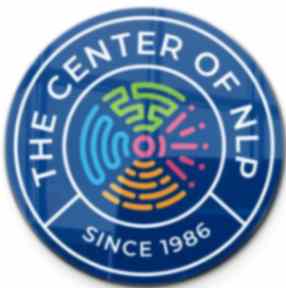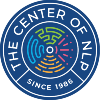CONTACT US [email protected]

HOW TO USE NLP STRATEGIES FOR BETTER INTERACTIONS
More than ever, efficient communication is essential in the fast-paced world of today. One's success and happiness can be greatly impacted by one's capacity for meaningful and compelling interaction, whether in social or professional contexts. One powerful tool to boost communication skills is Neuro-Linguistic Programming (NLP). This article Digs into how to use NLP strategies for better interactions, providing insights into NLP coaching skills development and techniques to persuade and inspire others.
Neuro-Linguistic Programming
Neuro-Linguistic Programming, commonly known as NLP, is a psychological approach that involves analysing and modifying behaviour through language and other forms of communication. It was developed in the 1970s by Richard Bandler and John Grinder, who believed that there is a connection between neurological processes (neuro-), language (linguistic), and behavioural patterns learned through experience (programming). By perceiving and utilising these connections, individuals can improve their communication, overcome psychological barriers, and achieve personal and professional goals.
The Core Components of NLP
NLP consists of several key components that form the foundation of its strategies:
Modeling: Observing and imitating the successful behaviours and thought patterns of others.
Language Patterns: Using specific linguistic techniques to influence and guide conversations.
Sensory Acuity: Enhancing awareness of sensory information to better understand and respond to others.
Outcome Orientation: Setting clear, achievable goals and focusing on desired outcomes.
NLP Strategies for Better Interactions
Building Rapport
Building rapport is a fundamental NLP strategy for improving interactions. Rapport is a harmonious relationship in which individuals understand each other’s feelings or ideas and communicate smoothly. Here are some NLP techniques to build rapport:Mirroring and Matching: Subtly mirror the other person’s body language, tone of voice, and pace of speech. This creates a sense of similarity and trust.
Pacing and Leading: Start by matching the other person’s communication style and gradually leading them towards a desired state or outcome.
Active Listening: Pay close attention to what the other person is saying, and show empathy and comprehension through verbal and non-verbal cues.
Using Language Patterns
Language is a powerful tool in NLP. Specific language patterns can help direct conversations and influence others positively.Milton Model: Named after Milton Erickson, this model uses vague and ambiguous language to allow individuals to fill in the gaps with their own experiences. This can be particularly useful in coaching and therapy.
Meta Model: This model involves asking precise questions to clarify vague statements, challenge assumptions, and disclose deeper meanings. It is essential for resolving misunderstandings and gaining a clear recognition of the other person’s perspective.
Positive Language: Frame your communication in a positive light. Instead of saying, “Don’t be late,” say, “Please be on time.” Positive language fosters a more encouraging and cooperative atmosphere.
Anchoring
Anchoring is an NLP technique that involves creating a stimulus-response pattern to evoke specific emotional states. This can be particularly useful in both personal and professional interactions.Creating Anchors: To create an anchor, associate a specific physical gesture, word, or touch with a desired emotional state. For example, pressing your thumb and forefinger together while feeling confident can help you access that confidence later when you repeat the gesture.
Using Anchors: Use anchors to quickly shift your emotional state or to help others access positive states during interactions. This can improve the quality of communication and help achieve desired outcomes.
Reframing
Reframing involves changing the way a situation or experience is perceived to create a more positive or equipping perspective.Context Reframing: Change the context of a situation to alter its meaning. For example, if someone is frustrated about a challenge at work, reframe it as an opportunity for growth and learning.
Content Reframing: Change the content or focus of a situation. For instance, instead of focusing on a mistake, highlight what can be learned from it and how it can prevent future errors.
NLP Coaching Skills Development

Developing NLP coaching skills can significantly improve your ability to guide and support others. Here are some key areas to focus on:
Listening and Questioning Skills
Effective coaching begins with active listening and asking powerful questions. Use the Meta Model to delve deeper into clients’ thoughts and beliefs, helping them expose hidden insights and overcome limiting assumptions.Goal Setting and Outcome Orientation
Help clients set clear, achievable goals and maintain a strong focus on desired outcomes. Use NLP techniques like visualisation and anchoring to reinforce positive states and keep clients motivated.Behavioural Flexibility
Encourage clients to develop behavioural flexibility by exploring different perspectives and approaches. Use NLP modelling to identify successful strategies and adapt them to clients’ unique situations.
NLP to Persuade and Inspire Others
NLP can also be used to persuade and inspire others, whether in leadership, sales, or everyday interactions. Here are some strategies:
Storytelling
Stories are a powerful way to convey messages and inspire others. Use stories to illustrate points, share experiences, and connect emotionally with your audience.Persuasive Language Patterns
Use persuasive language patterns to influence others. For example, the “yes set” technique involves getting others to agree to a series of small statements, making them more likely to agree to a larger request.Creating a Vision
Inspire others by creating a compelling vision of the future. Use vivid language and sensory-rich descriptions to paint a picture of what can be achieved.
Key NLP Techniques for Enhancing Communication
Effective communication is essential for building strong relationships and achieving success in various aspects of life. Here are some key NLP techniques to increase your communication skills:
Mirroring and Matching
Description: This technique involves subtly mimicking the other person's body language, tone, and pace of speech to build rapport and create a sense of connection.
Benefits:
Helps in establishing trust and comfort.
Facilitates smoother and more engaging conversations.
Encourages openness and cooperation.
Active Listening
Description: Active listening requires fully concentrating on what the other person is saying, in sighting their message, and responding thoughtfully.
Benefits:
Shows respect and validation for the speaker’s thoughts and feelings.
Reduces misunderstandings and clarifies intentions.
Strengthens relationships by demonstrating empathy and engagement.
Language Patterns
Description: Utilizing specific linguistic techniques, such as the Milton Model and Meta Model, to influence and guide conversations.
Benefits:
Enrich the effectiveness of communication by tailoring language to the audience.
Increases the likelihood of achieving desired outcomes.
Anchoring
Description: Associating a particular gesture, word, or touch with a specific emotional state to trigger that state on demand.
Benefits:
Helps in accessing positive emotional states quickly.
Can be used to manage stress and boost confidence.
Supports personal and professional effectiveness by maintaining emotional balance.
Ready to Transform Your Communication Skills?
Implementing these NLP techniques can improve your interactions and make a significant difference in your personal and professional life. If you’re eager to submerge into Neuro-Linguistic Programming and learn more about how it can benefit you, visit Brigitta Hoeferle’s website for expert insights, resources, and coaching opportunities. Start your journey towards more effective communication today!
NLP Strategies for Persuasion and Inspiration
NLP offers powerful strategies for persuading and inspiring others, essential for leadership, sales, and motivational speaking. Here are some effective approaches:
Storytelling
Description: Using narratives to convey messages, share experiences, and connect emotionally with your audience.
Benefits:
Captures attention and makes messages more memorable.
Builds emotional connections and engages listeners on a deeper level.
Provides context and relatability to the information being shared.
Persuasive Language Patterns
Description: Employing specific language techniques to influence others’ thoughts and behaviors, such as the “yes set” technique.
Benefits:
Increases the likelihood of agreement and cooperation.
Helps in guiding conversations toward desired outcomes.
Strengthen the effectiveness of negotiations and sales pitches.
Creating a Vision
Description: Crafting a vivid and compelling vision of the future to inspire and motivate others.
Benefits:
Provides clarity and direction, aligning individuals with shared goals.
Stimulates enthusiasm and commitment towards achieving objectives.
Facilitates leadership and motivation by painting a clear picture of success.`
By mastering these NLP techniques, you can significantly improve your ability to communicate effectively, persuade others, and inspire action.
Want to Inspire and Persuade with Confidence?
Enhancing your ability to persuade and inspire others is just a step away. Explore how advanced NLP techniques can help you achieve your goals and influence those around you. Contact Brigitta Hoeferle for personalised NLP coaching and expose the full potential of your communication skills. Take action now to become a more impactful communicator!
To Sum Up!
Incorporating NLP strategies into your interactions can significantly refine your communication skills, improve relationships, and help you achieve your personal and professional goals. By comprehension and applying techniques such as building rapport, using effective language patterns, anchoring, and reframing, you can create more meaningful and impactful interactions.
Additionally, developing NLP coaching skills can encourage you to guide and support others in their growth and development. Whether you aim to persuade, inspire, or simply connect more deeply with others, NLP offers a powerful toolkit for better interactions.
Check Out For more:
Neuro-Linguistic Programming: Rewiring Your Brain for Success
The Role of NLP in Improving Public Speaking and Presentation Skills
The Art of Effective Communication: NLP Strategies for Better Interactions
Mastering Influence: Using NLP to Persuade and Inspire Others
The Power of Neuro-Linguistic Programming: Transforming Your Mindset
Mastering Neuro-Linguistic Programming: A Guide to Unlocking Your Potential
Copyright 1989 - 2024 | The Center of NLP © | All Rights Reserved

